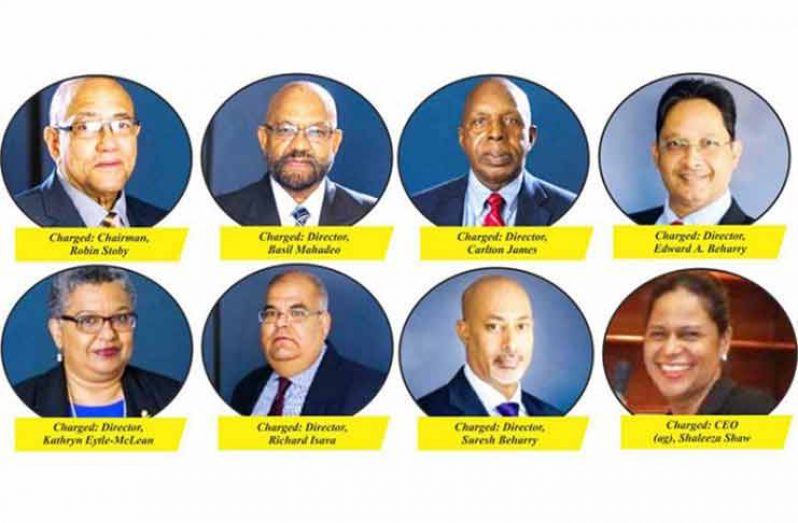CHIEF Magistrate Ann McLennan on Wednesday commenced, and completed a voir dire (a trial within a trial) to determine whether forensic financial analyst Sherronie James could be deemed an expert to give evidence in the trial against eight directors of the Guyana Bank for Trade and Industry (GBTI).
Those on trial are: GBTI directors, Edward A Beharry, Suresh Beharry, Kathryn Eytle-McLean, Richard Isava, Carlton James and Basil Mahadeo; its chairman Robin Stoby and acting Chief Executive Officer (CEO) Shaleeza Shaw.
They are jointly charged with failing to comply with a production order issued by acting Chief Justice Roxane George-Wiltshire. The accused being placed before the courts resulted from an on-going Special Organised Crime Unit (SOCU) investigation into the US$500M fraud at the Guyana Rice Development Board (GRDB).
The chief magistrate during her ruling to commence the voir dire noted that there was a need for expert evidence to assist the court in the matter.
Magistrate McLennan noted that the voir dire was to ascertain whether Sherronie James could be deemed an expert to give her evidence on key aspects of the case.
James wasted no time and submitted five certificates in areas such as money laundering and forensic financial analysis. She was then cross-examined by defence counsel Nigel Hughes, Steven Fraser and Edward Luckhoo.
The matter was adjourned until June 19 for defence counsel and SOCU prosecutor Patrice Henry to give submissions to the court.
The eight directors are jointly charged with failing to comply with a production order issued by the acting chief justice and served by a marshal of the High Court, ordering them to produce certain named documents within seven days to SOCU head, Assistant Commissioner of Police, Sydney James.
It is alleged that they contravened the order without reasonable cause.
SOCU, as part of its probe into the fraud case, had moved to the court to obtain an order instructing GBTI to produce all the required documents to aid in the investigation.
Under tough anti-money laundering laws, once court orders are granted, financial institutions are reportedly bound to provide information. In this case, the monies are not from private accounts, but rather from the U.S. dollar and other accounts of GRDB, a state entity.



.jpg)









